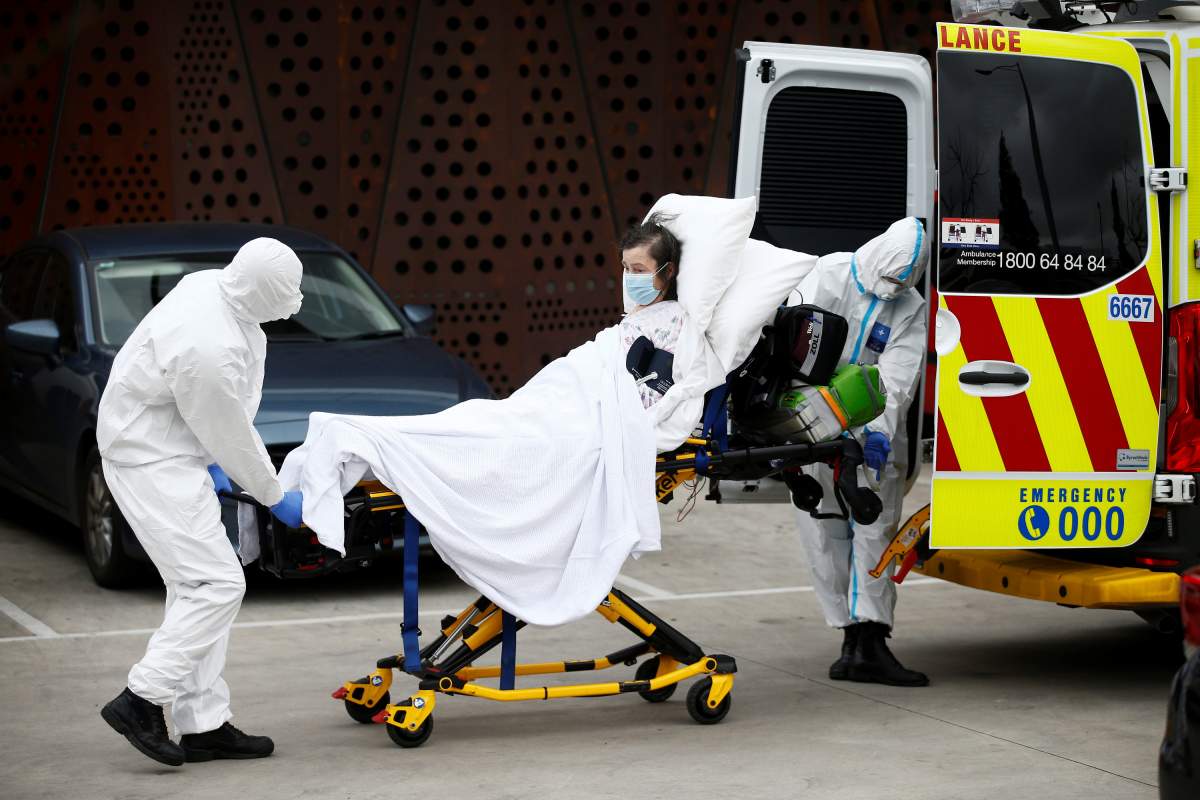Australia has sent defense and emergency medical teams, usually deployed to disaster zones, to aged care homes in the city of Melbourne to help contain the country’s worst outbreak of the coronavirus.

Another hotspot, in inner-city Sydney, forced a senior adviser to Prime Minister Scott Morrison into self-isolation, but the prime minister has been cleared to continue working.
Queensland barred anyone from Sydney from entering the state and locked down suburbs south of its capital, Brisbane, on Wednesday after two young women tested positive for COVID-19 after returning from Melbourne and not quarantining.
Australia has reported far fewer coronavirus cases than many other countries, with just over 15,300 confirmed infections and 167 deaths as of Tuesday.
But a spike in community transmission in the most populous southeast states of Victoria and New South Wales (NSW) has alarmed health officials and the government who fear a second wave just as the country was reopening.

Victoria reported 295 new cases on Wednesday, down from 532 on Monday, and nine deaths, including seven in aged care. The state has a total of 9,304 cases.

Get weekly health news
Aged care homes are at the center of the Victoria outbreak, with 804 active COVID-19 cases linked to the homes, including workers, state premier Daniel Andrews said.
“The most tragic part of this outbreak is there have been 49 deaths in aged care. That is a terrible tragedy and there will be more,” Australia’s health secretary, Brendan Murphy, told reporters.
At one facility, several residents were transferred to hospital by helicopter on Tuesday and army medics were sent in to cover staff who are self-isolating.
NSW reported 19 new cases, including two in hotel quarantine, raising the state’s total cases to 3,529. The state capital Sydney is grappling with several clusters that have sprung up at pubs, restaurants and schools.
Morrison called the situation in 13 Victorian aged care facilities “very distressing.” The outbreaks have largely been due to transmission from workers at the homes, many of whom might not have been aware they were carrying the virus.

“When it rains, everyone gets wet. And that is what we’re seeing with broad-based community transmission in Victoria,” Morrison said.
The government has sent 1,400 military personnel and five emergency teams to Melbourne to help deal with the aged care issues, including contact tracing.
Melbourne, the country’s second most populous city, is in the midst of reimposed lockdown that has stalled the reopening of businesses, forced other states to shut borders with Victoria and held off reopening travel with New Zealand.
“There is a significant Victorian wave, but that Victorian wave is impacting the national economy more broadly,” Morrison said in a televised media conference.
Australia has entered its first recession since the early 1990s, with the budget set to plunge to its biggest deficit since World War Two, as the government has rolled out hundreds of billions of dollars in spending to boost the economy.
“It’s in the national interest, from a health perspective and economic perspective, that we ensure that Victoria wins here,” said Morrison.
(Reporting by Renju Jose and Sonali Paul; Editing by Jane Wardell and Michael Perry)








Comments